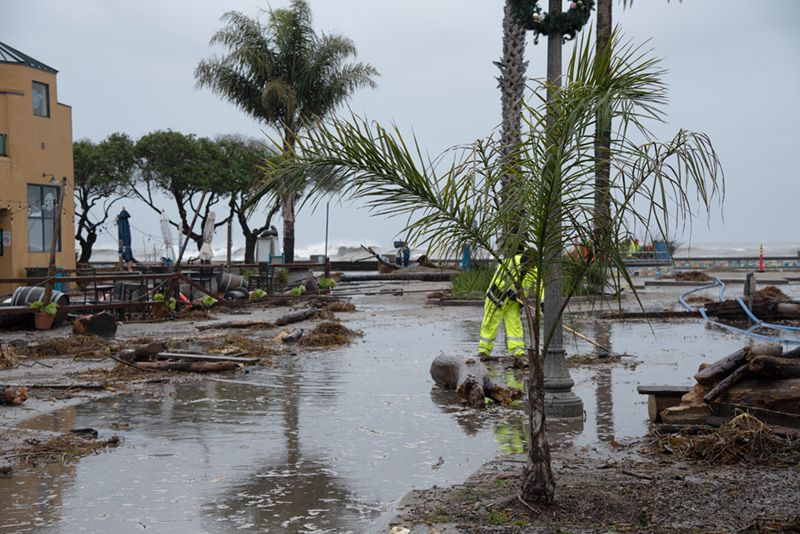Vidya Sethuraman
India Post News Service
Recently, California was hit by multiple successive storms that dumped heavy rain and snow over the state. It’s not too late to be prepared. Experts working on the frontlines provided an overview of the impact of the storms and what to expect in the near future; a guide for how to keep yourself and your loved ones safe at home or on the road in extreme weather; where flood victims can go for recovery resources at the EMS Briefing on Jan 17. The briefing was hosted by CalOES and Listos California and co-hosted by Ethnic Media Services and California Black Media.
Diana Crofts-Pelayo of CalOES cited the federal government’s recent approval of “an expedited major disaster declaration” for three California counties — Merced, Sacramento and Santa Cruz — qualifying them for extra assistance beyond what those local governments can provide. While Gov. Newsom’s administration continues to seek more such declarations for a total of 49 of the state’s 58 counties, California is already deploying numerous resources to counter the impacts of the winter storms that have taken at least 20 lives.
“We are anticipating that other counties will be brought in,” said L. Vance Taylor, of the agency’s Office of Access and Functional Needs, but already, “if you live in one of the three approved counties, you’re eligible to apply for federal assistance from FEMA (Federal Emergency Management Agency).”
The phone number to apply for such help is (800) 621-3362. FEMA also has a mobile app and online portals, available in multiple languages, at disasterassistance.gov, and will be sending out Disaster Survivor Assistance Teams to shelters and approved areas to help support people in the registration and application process, by providing literacy and language assistance, and answering questions.
Jason Wilken, CDC career Epidemiology Field Officer assigned to the California Department of Public Health said “The best advice is really to avoid flood water whenever possible. If you have children, do not allow them to play in or near floodwaters. Don’t let them play with toys or anything that floodwater has gotten wet until those items can be disinfected.”
Tony Cignarale of the Department of Insurance cautioned that drivers who only carry liability insurance, not comprehensive, may be out of pocket if their car is damaged by a falling tree. He advised carefully documenting your damage, saving receipts and reporting them. Further information on these topics is available at (800) 927-4357 or at: insurance.ca.gov.
Kim Johnson, of the California Department of Social Services, directed the audience to her agency’s website, cdss.ca.gov, with links to disaster resource guides specific to immigrant communities in multiple languages. We have and continue to support the Cal HOPE line, which you can reach either by phone (833) 317-HOPE (4673) or through the website (calhope.org) and get connected to someone who can just support you in helping navigate the events that have occurred.”







